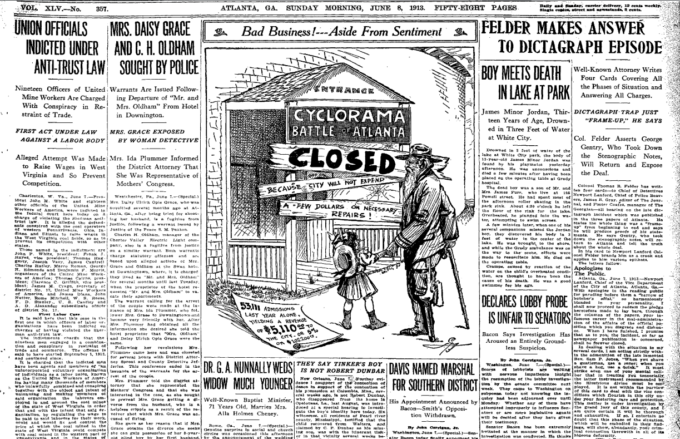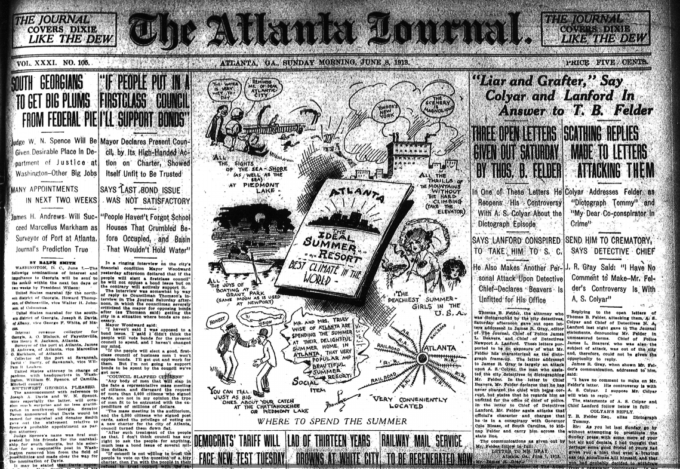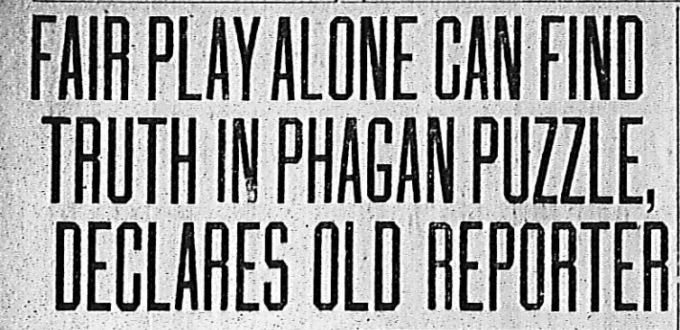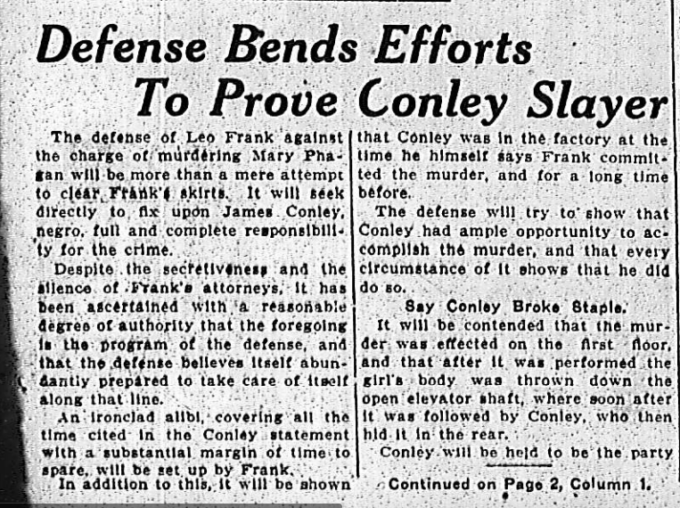 Another in our series of new transcriptions of contemporary articles on the Leo Frank case.
Another in our series of new transcriptions of contemporary articles on the Leo Frank case.
Atlanta Georgian
Wednesday, June 11th, 1913
Judge Roan Gives Suspect Chance to Show Why He Should Not Be Released.
The Phagan case took a queer turn Wednesday afternoon when Judge Roan, apparently stirred by Luther Z. Rosser’s ar[r]aignment of the way Jim Conley has been “petted” by the police, issued notice to suspects in the mystery that they will be given opportunity Friday to show cause why the negro should not be released from custody as a suspect.
However, the move is strictly legal in character, Conley, through his attorney, W. M. Smith, having signed a written statement to stay in the custody of the police as a principal witness if previous orders are vacated and he is legally freed as a suspect.
Agrees to Remain.
Judge Roan informed Solicitor General Hugh M. Dorsey that he wanted to withdraw his previous order committing Conley to the police station so that the negro’s status could be definitely fixed and so that he could perhaps be sent back to the county jail. Both Conley and his attorney announced that the prisoner wanted to stay at police headquarters.
Smith also came forward with the agreement that Conley would remain in custody of the chief of police.
Sensations Ahead.
Judge Roan then issued what is known as a rule nial, informing Frank, Gordon Bailey, an elevator boy, and Newt Lee, the negro night watchman, that they could be given a chance Friday to show why Conley should not be released.
Sensational developments may follow Friday if the Frank defense is allowed to present facts against Conley for Attorney Rosser is firmly convinced that the negro is the guilty man and has so announced.
Whether the negro shall be indicted as an accessory after or to the fact, or be continued to be held as a witness, will then be determined.
Napier Analyzes The Phagan Case.
The Georgian publishes the following letter written by George M. Napier, the well-known lawyer, on the Phagan case, as it gives for the first time a legal analysis of the case for and against Frank: Continue Reading →

 Another in
Another in 


 Another in
Another in  Another in
Another in 




 Another in
Another in 





